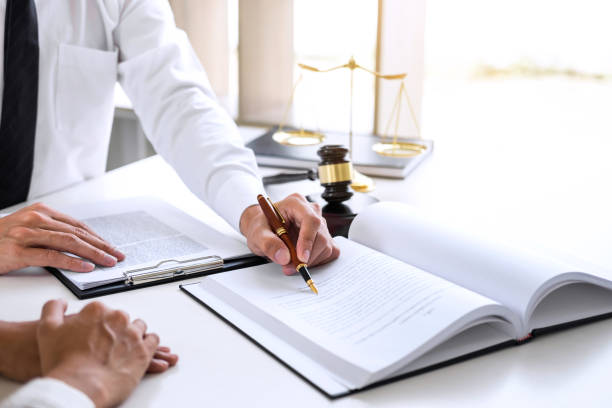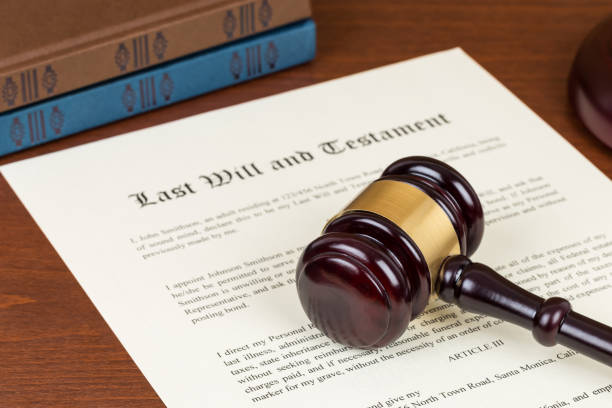Wills and estates NSW is a broad topic that covers various points related to Wills and estates in NSW such as the meaning of Wills, and importance of preparing Wills.
So, before we explore all these aspects in detail, what are wills and estates in NSW? A Will is a legal document that outlines a Will-maker’s wishes and intentions regarding estate distribution. A Will-maker is also called as a testator.
Estates includes all the assets that a person owns such as entitlements to property, interests, and other possessions and assets.
In other words, a testator provides information about distributions of their estate in their legal Will. This is why the subject of Wills and Estates in NSW is of high importance.
The Succession Act 2006 and the Probate and Administration Act 1898 governs the area of law related to wills and estates in NSW. In this article, we will discuss key aspects and questions under the topic Wills and estates in NSW.
Wills And Estates NSW: Brief Introduction
When the testator makes his/her Will, they must appoint someone as the “executor” of their Will. The executor is the person responsible for administering the estate, and contacting all beneficiaries named in the Will.
Beneficiaries are family members or close friends who receive some portion or entitlements from the estate of the testator. Once the testator passes away, the executor has many roles and responsibilities to fulfil in order to administer the estate.
While estates include most of the property and assets of the deceased, it also includes liabilities and debts. Importantly, when writing a Will, a person needs to provide clear descriptions of items that they wish to give to beneficiaries.

Informal Wills And Estates In NSW
A testator must follow certain requirements to make his/her Will legally binding. For instance, in NSW, the testator must write a Will i.e. it must be a written document, either handwritten or typewritten.
Moreover, the testator must initial all pages of the Will, and provide a signature at the end of the document. He/she must do so in the presence of two witnesses. Following this, the two witnesses will also need to sign the document.
Importantly, the two witnesses cannot be a member of the testator’s family as they need to be impartial witnesses.
If the Will-maker follows these criteria, he/she drafts a legally valid Will. Ideally, a person seeks the help of estate planning lawyers to help them out with drafting a testament.
Informal Wills are those that are made using do-it-yourself Will kits, or online templates. These can pose a problem because each jurisdiction has certain criteria (like we saw above) that makes a Will legally valid and recognisable.
There are high chances for someone to challenge the validity of informal Wills. This is why it is more prudent to approach solicitors to make legally binding testaments.
What Does Intestate Mean?
When a person dies without a valid Will in place, it is referred to as dying “intestate.” In such cases, the entire process following death of the deceased changes. For instance, family members will need to make an application to the Supreme Court for ‘Letters of Administration.’
Letters of Administration is a document through which a Court gives formal approval for someone to administer the estate of the deceased.
According to NSW Trustee & Guardian, Courts generally grant administration of an intestate estate to people with greatest entitlements such as spouse of deceased, or children of the deceased etc.
Lawyers and other legal professionals always advice people to prepare their Wills beforehand. In cases of intestacy, there are high chances of disputes arising between various family members of the deceased.
On the other hand, by making a valid Will, a person can clearly outline their intentions and wishes. This will greatly minimise chances of disputes arising in the future. Therefore, each and eery person needs to prioritise drafting a valid Will.
People may understandably delay this because the very idea of “death” can be unsettling. However, it is necessary to be practical and prudent and take care of such affairs.

Wills And Estates NSW: Frequently Asked Questions
Given below are some questions that people frequently ask in relation to Wills and estates in NSW.
Q1. Who can make a Will?
There are certain criteria one needs to fulfil in order to be eligible to make a Will. These include:
- Be over 18 years of age;
- If under 18 years of age, they must be married; and
- Have testamentary capacity.
Testamentary capacity is the person’s mental ability to understand that they are creating a Will. This means that they must understand the effects of creating a Will, and they must be aware of the general nature and extent of their property.
They must not suffer from any illness or impairment that affects their ability to make rational decisions.
Q2. I am unhappy about my family member’s Will. Is there anything I can do to claim more entitlements?
If people feel that they have not been adequately provided for in a Will, they can make family provision claims. Only some people like spouses, de facto partners and children, among others, are eligible to file for such claims.
If the claim is successful, the court can change the Will.
Q3. Do I need to update my exisiting Will?
If you need to make any change or addition to your Will, you need to do so formally. You can do this by adding a codicil. This is a document that is used to make any alterations to your existing Will.
Depending on the jurisdiction, codicils can either serve as an amendment to an existing Will, or as an alternative to a Will itself.
Estate Planning Lawyers For Your Legal Needs
Although it is a stressful task to create a valid Will, it is very important to do so. With the right guidance, you can prepare your Will in a hassle-free manner.
At JB Solicitors, our team of estate planning lawyers are experts in providing guidance for all matters related to Wills and estates.
For more information about our services, contact us today.
